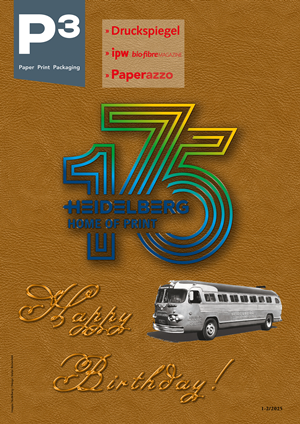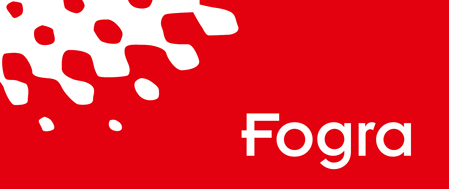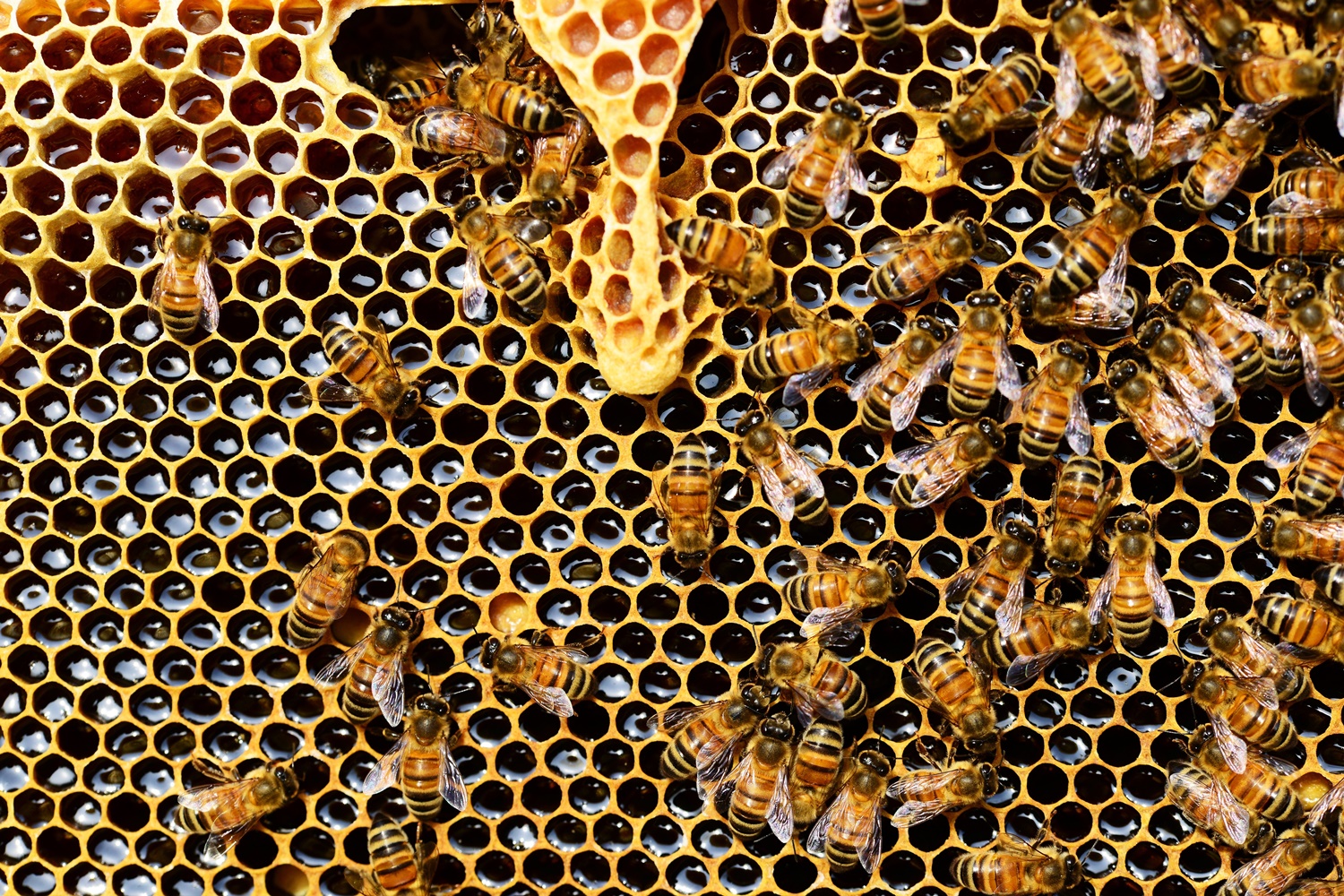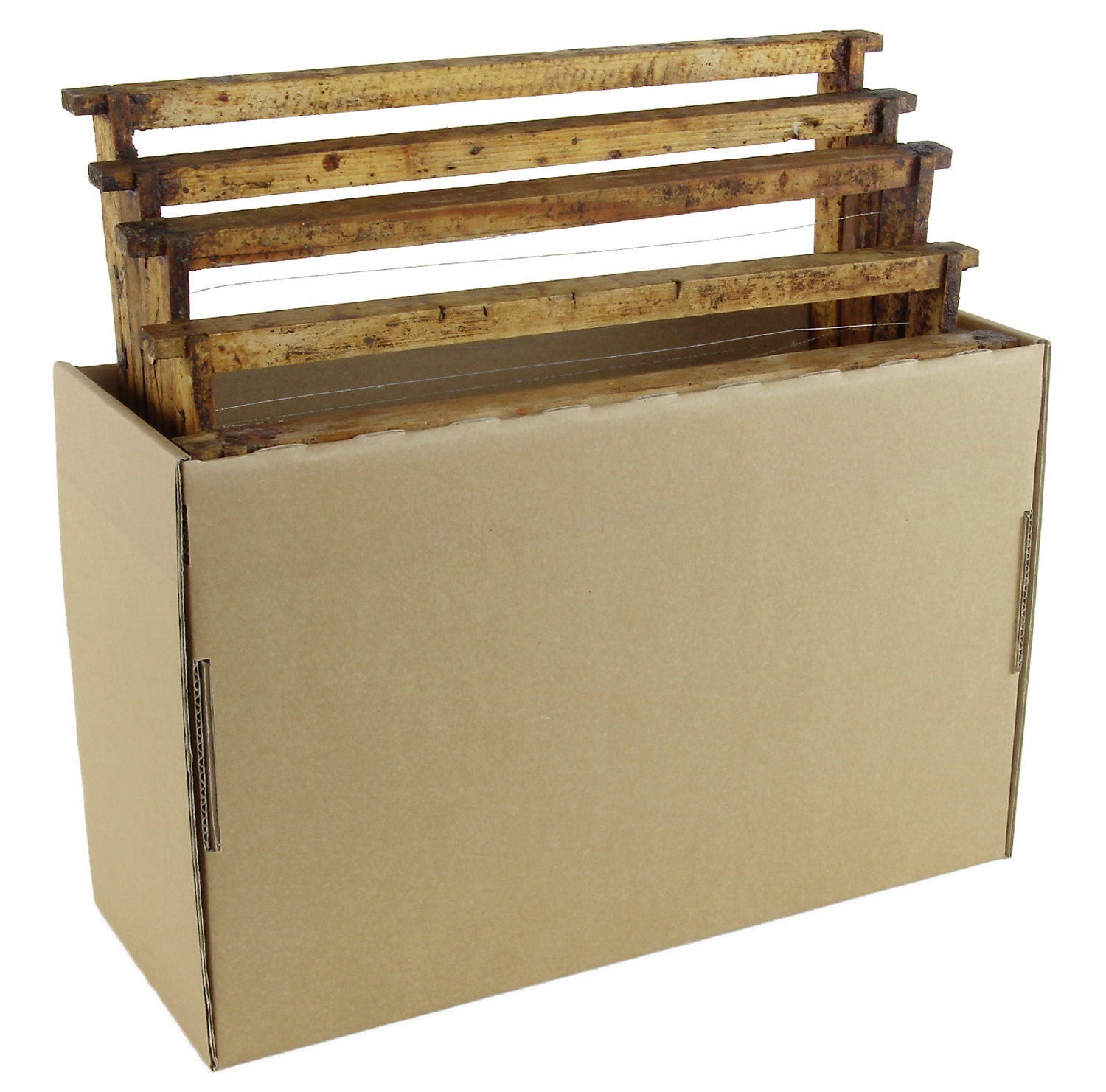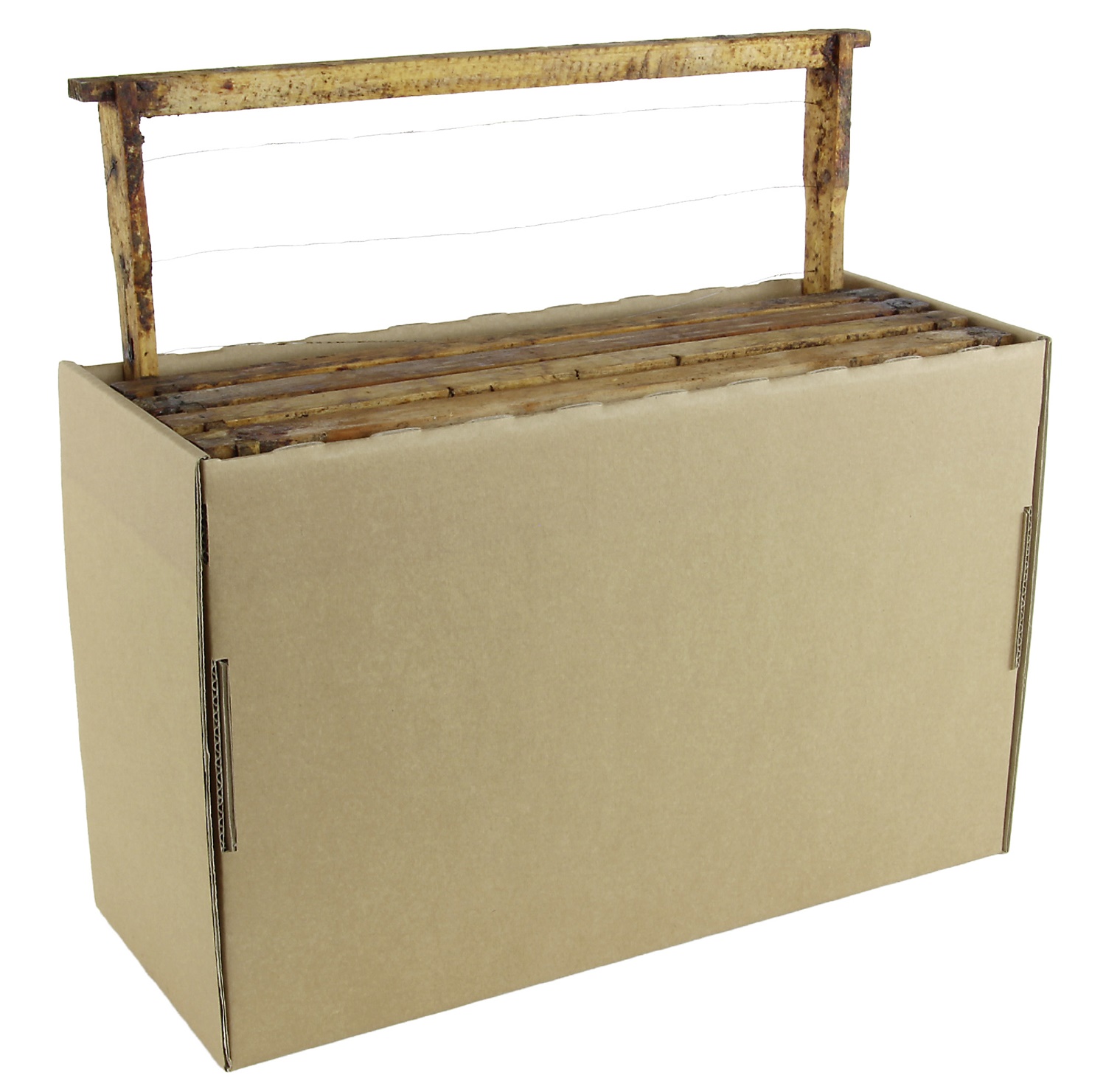P3 1-2/2022 en
Streiff & Helmold
Sustainable Packaging for Transporting Beehives
Sustainability
When we talk about bees in Germany, we actually mean the honey bee. This is the most common bee species in this country. However, the population has declined by two-thirds in recent years and decades. Bees are dying mainly due to the destruction of their habitats and food sources - reasons are: the use of pesticides in agriculture, environmental toxins (including microplastics) and climate change.
Bees not only produce delicious honey, but are an essential part of our ecosystem.
This is a big problem as bees pollinate our flora and we rely on insects and bees for pollination services. If important pollinators fail in an ecosystem, a vicious circle begins: without pollinators there are no plants, without plants there are no seeds and fruits. Without these, however, many small creatures such as songbirds and beetles lack the basis for nutrition. If they die, other species will lack important prey and so on. In addition, 90% of global food production consists of plants. Of these, 71% depend on bees for pollination. So if we want to continuously see our fruit and vegetable department in the supermarkets full to bursting and want to prevent this vicious circle, we have to protect the habitat of insects and rethink ecologically, economically and socially: in short: act sustainably (compare the three pillars of the Sustainability).
More sustainability in the packaging industry
This conversion is already happening in small steps, and we are increasingly noticing this in our industry. The trend in recent years has been away from plastic packaging and towards sustainable alternatives.
As a customer you can achieve a lot. That means: What customers demand, the companies have to implement. This is the only way they can remain marketable. The sustainable aspect has become increasingly important for the purchase decision in recent years. Companies have also taken on this topic and are increasingly offering sustainable solutions. We in the packaging industry can also record a significant increase in inquiries on the subject of “sustainable packaging solutions”, on which we advise our customers competently. This is how the cooperation with our customer “myhoney” developed.
Save the bees
The goals of the company myhoney are primarily: protecting the bees, increasing the population and creating a better understanding of the importance of insects in society. Myhoney therefore offers companies the opportunity to sponsor bees. You sponsor a beehive, which is cared for in a suitable habitat by an organic beekeeper, who informs the companies about the collected honey and the pollinated flowers with pictures and videos via an app. Such a sponsorship offers many advantages: In addition to the obvious contribution to more environmental protection and sustainability, a beehive can also produce around 20 kilograms of honey a year, which can be used as a gift for employees or customers, for example.
However, one cannot set up a beehive everywhere if the bees are to live in a suitable habitat. Often suitable places can be far apart and the beehives have to be transported at times. When it came to the question of how and with what to transport the beehives, the company faced a challenge, because a transport box made of plastic or similar materials does not correspond to the sustainable concept of myhoney. At the same time, the material must not be harmful to the bees. So the search began for other, natural packaging solutions.
Construction for a transport box for bees
With the help of our development department, we have succeeded in working out a construction that holds together with a special plug-in technique without adhesives or adhesive tape and offers high stability.
The packaging achieves this stability through the use of corrugated cardboard. It offers a high load-bearing capacity, which is achieved, among other things, by gluing corrugated cardboard (cardboard laid in corrugations) between two layers of “smooth” cardboard (starch adhesive). The corrugation in the cardboard not only ensures stability, but also forms a cushion that protects the packaged goods. There are different types of corrugated cardboard, which differ in thickness and flute pitch (i.e. how long a flute is).
We chose a C wave, i.e. a coarse medium wave. The wave pitch is relatively wide with this type and is approx. 6.5 - 7.9 mm with a material height of 3.1 to 3.9 mm. Due to the large distances, it offers a good buffer and can withstand a load of up to 25 kg.
On the one hand, we did not use adhesives and adhesive tape simply because of possible intolerance for the bees, on the other hand, because of the sustainable aspect, so that the material can then be disposed of and recycled more easily. That's not the only eco-friendly benefit though; because corrugated cardboard is generally very sustainable.
Corrugated board - environmentally friendly material
Corrugated cardboard offers many advantages. In addition to high stability and flexibility, corrugated cardboard is particularly environmentally friendly because a high proportion of recycled materials is used here. Corrugated cardboard consists of 76% waste paper. Around 5.4 million tons of waste paper are processed into new corrugated board every year. Almost all of the corrugated cardboard is thus recycled. Fresh wood fibers are also required for production. We make sure that all of our corrugated board suppliers are FSC (Forest Stewardship Council) certified. This guarantees products that do not come from overexploitation, but promote socially and environmentally responsible forest management. This means that only wood that is produced when forests are thinned is used. This is even good for the environment, because the wood used is small and residual wood that has to be disposed of anyway for the care of the forest. This protects the forests and supports forestry. In addition, the energy consumption is rather low compared to recycling glass. Chemical waste, such as that which occurs when plastics are recycled, is also significantly lower. Corrugated cardboard is not only environmentally friendly and can be easily recycled, it is also easy to reuse. This reduces packaging costs and the carbon footprint.
Our contribution to sustainability
With the project for myhoney, we approached the development of a packaging solution with the same ambition as with any other project before. Nevertheless, we found the company's concept very inspiring, so we would like to explicitly take it up again and draw attention to the topic of sustainability. It is important to us to always develop and offer our customers the perfect packaging solution tailored to their product.

